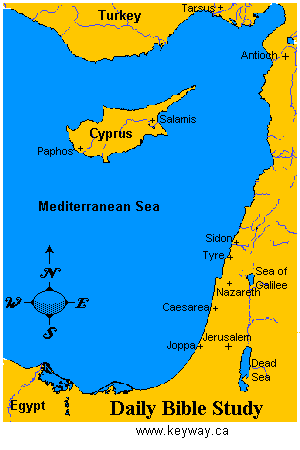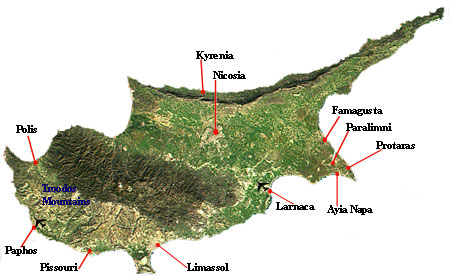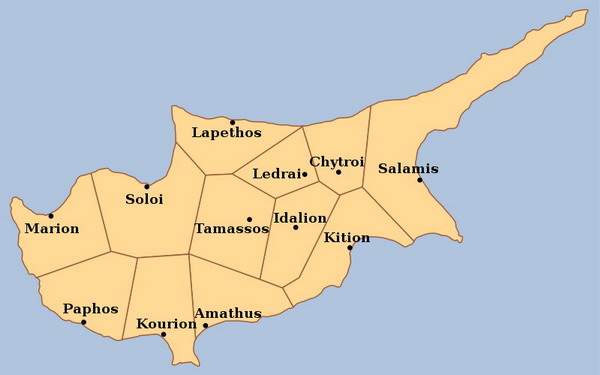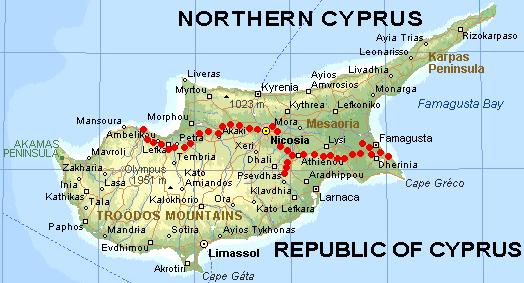Brit-Am Now no. 1383
The Lost Ten Tribes of Israel Movement
2 September 2009, 13 Elul 5769
Contents:
1. David Tempelhoff: prayer, fasting, repentance and worship
2. Ancient Israel and Cyprus
3. Upsurge Funds Needed
|
Brit-Am Discussion Group |
Contents by Subject |
Research Recognition Reconciliation Contribute |
|
Site Map Contents in Alphabetical Order |
This Site |
1. David Tempelhoff: prayer, fasting, repentance and worship
Re: Brit-Am Now no. 1382
Hi Yair,
Last week I came across an article worth mentioning.
There are young Jews from the USA going to Isreal and taking up residence on land that Pres Obama, UK and other nations are pressuring Isreal to leave.
These young Jews are bravely standing there ground lving in rough conditions and arming themeselves with small arms.
They are young, brave and passionate.
The article said its only a matter of time before there will be a confrontation with the Isreali Military.
Judah vs Judah.
Perhaps a time will come when all the 10 tribes will return to the land and take up residence in Areas that are inhabited by Palastinians, Egyptians, Jordanians, Lebonese and Iraqis ( Kurds).
There is a belief among many people that they will return to the land after the Messiah returns and there is peace.
I do not think this will be the case. It takes effort and sacrifice to change things in this world.
Judah wandered for 2000 years, praying and suffering until brave men and women returned to Isreal and carved out a civilized state.
I have been to war. Its harsh and its better to avoid it. The death of women and children, friends, allies even your enemies at times is hard to bear but sometimes there is no other alternative.
People accuse the USA of being a war mongering nation but the truth is Americans understand that freedom is not free. It takes blood and effort to stand up for what is right.
There is another way to defeat your enemies without the use of arms and that is thru prayer, fasting, repentance and worship.( Story of Jehosaphat) This is by trusting God Almighty to intervene and fight for you. The chance of this happening on a national scale in an age of secularism is slim to none. Despite people saying they hate the war they will still trust in weapons. If all Isreal ( 12 tribes) put on sack cloth and ashes and repented of their sins and humbly wept and cried out to God asking for strength to keep His commandments and walk righteously amazing things would happen. The God of Abraham, Isaac and Jacob is our Rock.
The best way to avoid conflict is to repent of our sins and cry out to our Father in heaven and thank Him for His loving kindness.
Its all about Abba Father. How can it not be? Everything we study at Brit Am is about the 12 Tribes. Who created the tribes? Who nurtured them and feed them? Who divided them? Who has sworn to bring them back? Who choose Abraham out of a dry desert desolate place and chose to raise a nations out of him?
Abba Father is still alive. He is still real and He deserves our worship not only because He is God but because He is the best friend anyone could have. The road block between us comes because He hates sin and He cannot dwell in it. That is why we have to repent and obey His commandments.
Sincerly,
David
2. Ancient Israel and Cyprus
George Orphanos wrote:
Hello,
I read with great interest all the information you presented regarding Cyprus beeing a part of the land of Israel.
It is also true that almost 3000 years ago the Greeks arrived in Cyprus bringing with them their civilazation, culture and language and since then Cyprus has been considered a part of the Greek territory (ancient Greek,Byzantine etc).
Do you believe that the native people were Hebrews that later were affected by the Greeks or Hebrews who left the island after the advent of the Greeks?
Sincerely
George Orphanos





